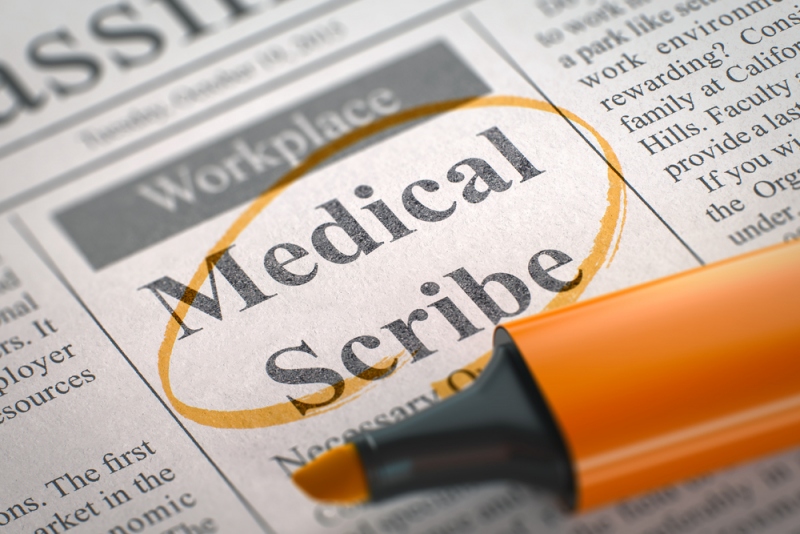Are you interested in a job in the healthcare field but aren’t sure that you’re suitable to be a doctor? Are you fearful of the level of debt you’d take on to study to be a doctor but would like to part of a team that helps save lives while avoiding a six-figure educational cost? Are you detail-oriented or feel that you can learn to be so? In which case, it’s quite possible that the role of a medical scribe would be a great way into the healthcare profession and leaves open the door to study for other related healthcare roles in the future too.

Let’s now look closer that what it is to be a Medical Scribe.
What Are a Medical Scribe’s Responsibilities?
When you’re asking the question, “Just what does a medical scribe do?” then you’re on the right track. The role includes working in the operating room as an observer along with the doctors, nurses and other healthcare professionals. A scribe takes notes about what action takes place, the medical charts that are referenced or discussions between the medical staff, and the documents used. This creates a clearer picture post-op to learn from in the future and to help provide more recorded information to cover potential issues like a malpractice suit.
Why the Division of Roles Between Scribe and Other Medical Staff?
What patients need is medical staff like experienced doctors and nursing staff to be 100% focused on the health of the patient. They need to be selecting the right equipment for the operation, ensuring correct medical procedures are followed and acting in the best interests of the patient always.
To distract them by needing to document step-by-step what they’re doing to improve the patient’s health, while trying to address a serious medical issue that potentially could be life threatening, would be a very bad idea. To work smoothly and efficiently through an operation and dealing with any unexpected turn of events as the operation proceeds through its planned stages requires all their focus and medical ability. Nothing less will do.
Attention to Detail is a Key Attribute
The medical scribe works in rooms where patients are treated including operating rooms, patient consultation rooms and where there’s outpatient care. They’re responsible for correctly documenting patient visits and noting all the major points so that the consultation or health response is fully documented without missing anything out. The medical history of the patient, which physical exam was conducted, any lab tests, scans, orders given, and how the patient faired during and following the assessment or treatment is all noted down.
Patient information is gathered up ahead of a visit to ensure the relevant notes are on-hand for the medical staff to refer to. Quite often, a previous medical issue relating to the current one makes access providing these records both necessary and often critical. In all the above, having a strong attention to detail along with not missing out key details in each medical case are requirements of the role of a medical scribe.
Do you have what it takes be a scribe in the medical profession? There are plenty of people who work happily in this role. However, others find that it’s a good entry into the healthcare field where they get first-hand experience where patients are being treated. This leads to many choosing to study to become a doctor, a nurse or for another patient-facing role later.
